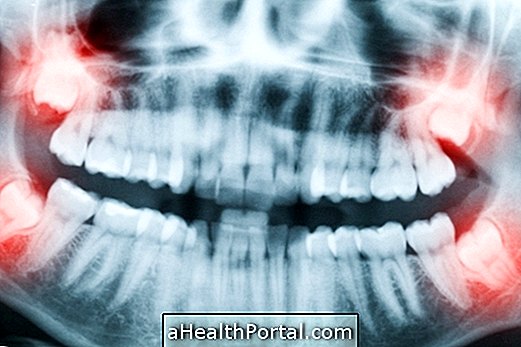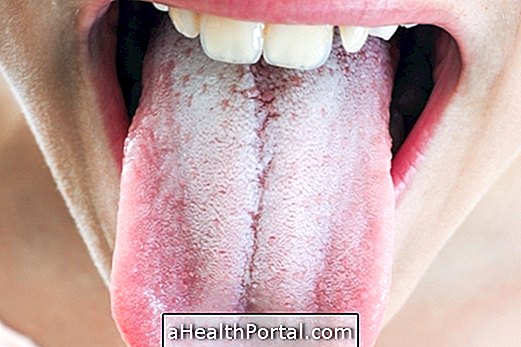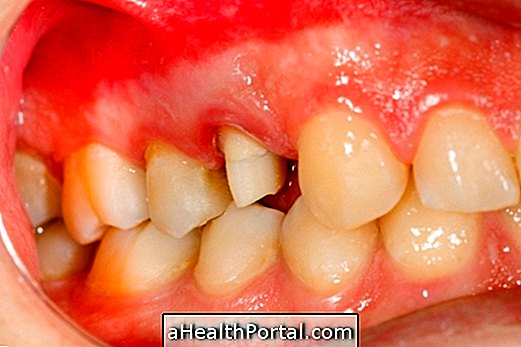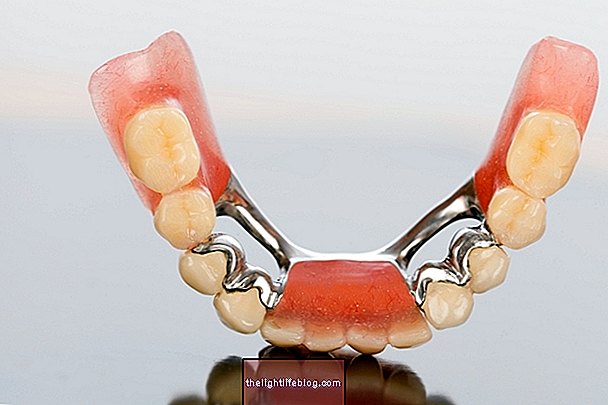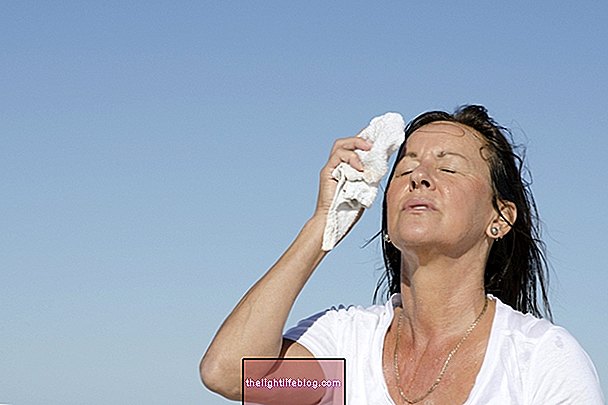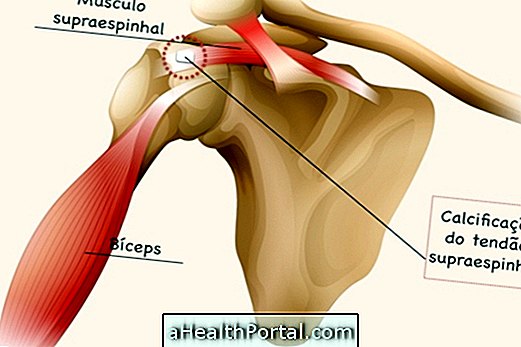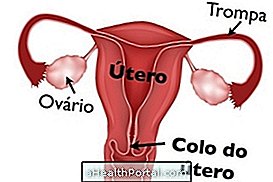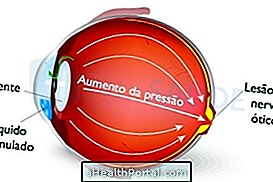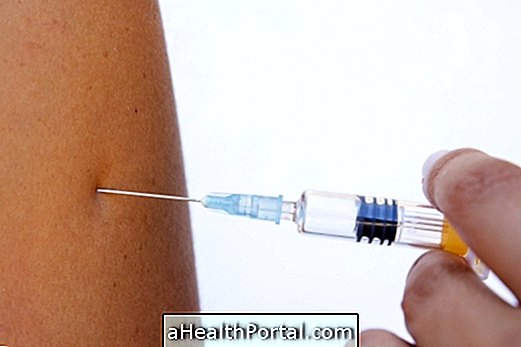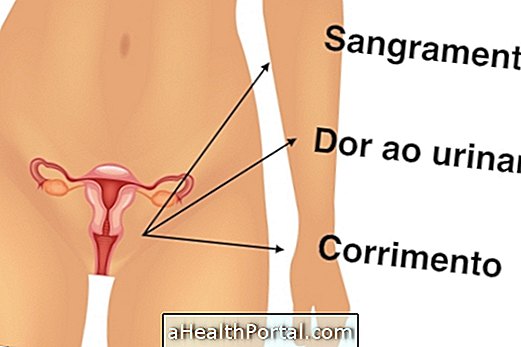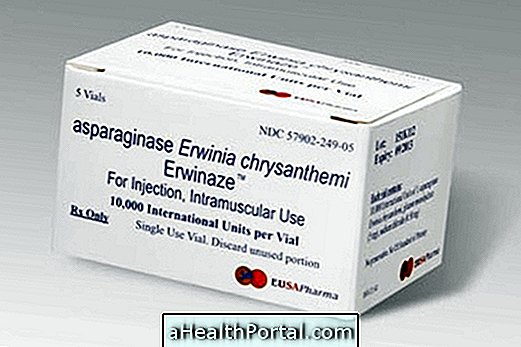When the gums are bleeding you should rinse your mouth with a little cold water to stop the bleeding, but it is essential to perform the treatment to combat gingivitis and prevent the gums from bleeding again.
The home treatment for gingivitis can be done at home with toothbrushing, with soft bristle brush, toothpaste for sensitive teeth and dental floss daily, as this disease is caused by an accumulation of bacteria in the gums, which arise due to bad oral hygiene. Check out the best teas to help heal gingivitis naturally.
If you continue to feel your teeth dirty or if you notice small plaques on your teeth, you can use a chlorhexidine mouthwash, which can be bought at the pharmacy or supermarket.
However, when the accumulation of bacteria gives rise to a large hardened bacterial plaque, called tartar, which lies between the teeth and the gum, it is necessary to go to the dentist to clean the teeth because only with their removal the gum will stop bleeding.
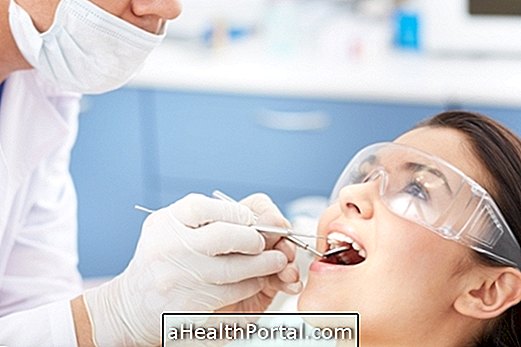
How is the treatment at the dentist?
In the dental office, the professional will:
1. Observe the inside of the mouth carefully
This can be done by using a small mirror to see the deep teeth or a small camera that can reach the places where the mirror can not. This is to observe if there are dark spots, holes, stains, broken teeth and the condition of the gums in each location.
2. Shaving the bacterial plaque accumulated in the teeth
After observing the hardened plaque, the dentist will make his / her withdrawal using own instruments that scrape all tartar, keeping the teeth properly cleaned. Some people may feel uncomfortable with the sound of appliances used by the dentist, but this treatment does not cause any pain or discomfort.
In more severe cases, when the plaque is too deep, it may be necessary to have a dental surgery for its complete removal.
3. Apply fluoride
Then the dentist can apply a layer of fluoride and will show how oral hygiene should be daily and if necessary can initiate other necessary treatments, to remove teeth or treat cavities, for example.
See how to brush your teeth to prevent and treat gingivitis
Remedies may be needed to treat desquamative gingivitis, which usually happens due to other diseases associated with pemphigus or lichen planus. In that case, ointment-like corticosteroids may be an effective solution, but the dentist may also recommend other oral anti-inflammatories.
Complications of gingivitis
The major complication that a gingivitis can cause is the development of another disease called periodontitis, which is when plaque has advanced to deeper parts of the gum, affecting the bones that hold the teeth. As a result, the teeth stay apart, soft and fall, and it is not always possible to put a dental implant or use dentures.
Gingivitis has a cure
The treatment cures gingivitis, but to prevent it from recurring it is necessary to avoid the factors that favor its installation, such as:
- Stop smoking;
- Do not breathe through the mouth;
- Brush your teeth properly at least 2 times a day;
- Always use chlorhexidine-based mouthwash before bedtime;
- Avoid foods that accumulate in the mouth, such as chocolate, cashew nuts, popcorn or foods with lots of sugar.
In severe cases, such as ulcerative necrotizing gingivitis, it is also recommended to consult the dentist every 6 months for a tooth cleaning and prescribe a gingivitis remedy, such as an antibiotic toothpaste, for oral hygiene at home .
Routine consultation with the dentist should happen at least once a year, but in case of gingivitis it may be wiser to return every 6 months to make sure there is no accumulation of tartar in the teeth.
Gingivitis is contagious
Gingivitis can be passed from one person to another by exchanging saliva, by kissing the mouth or by eating the same cutlery, for example. This can happen because inflammation of the gums is caused by the accumulation of bacteria in the mouth and the exchange of saliva, filled with bacteria increases the risk of the other person also having gingivitis if it does not have adequate oral hygiene.

